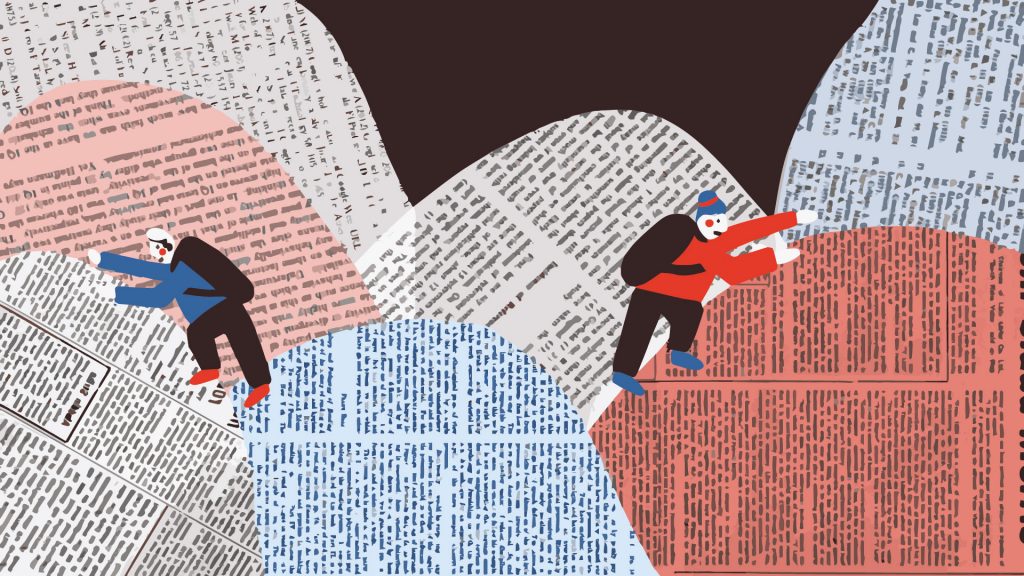
Professor Rughani further reading
Downloads available at: Research Gate, Academica.edu
Rughani, P. (2012) “The Art of Not Knowing” in Adams, K, & Shaw, P. (eds.) Anthology, Project Art Works 1997 – 2012 Project Art Works pp 204 – 206.
Rughani, P. (2012) “The Dance of Documentary Ethics” in Winston, B. (ed.) The Documentary Film Book bfi pp 98 – 109.
Rughani, P. (2010) “Are you a vulture? Reflecting on the ethics and aesthetics of atrocity coverage and its aftermath” in Keeble, R.L., Tulloch, J. & Zollmann, F. (eds.) Peace Journalism, War and Conflict Resolution Peter Lang: Oxford, pp 157 – 172.
Ethics codes of practice
BBC Guidance on working with vulnerable contributors. BBC Ethics Guide (archived pages)
The Equality and Human Rights Commission is Great Britain’s national equality body and has been awarded an ‘A’ status as a National Human Rights Institution (NHRI) by the United Nations.
British Educational Research Association BERA’s ethics and guidance documents are used by educational researchers and those active in many other disciplines.
British Psychological Society (2020). Conducting research with people not having the capacity to consent to their participation: A practical guide for researchers. Leicester: Author.
Hanna, M. & Dodd, M. (2020) (25th ed.) McNae’s Essential Law for Journalists. OUP Oxford.
Madary, M. and Metizinger, T. K. (2016) Real Virtuality: A Code of Ethical Conduct. Recommendations for Good Scientific Practice and the Consumers of VR-Technology
NUJ code of conduct The National Union of Journalists’ code of conduct has set out the main principles of UK and Irish journalism since 1936.
Ofcom Broadcasting Code (2019) Ofcom is the regulator for the communications services”The Code is set out in terms of principles, meanings and rules and, for Sections seven (Fairness) and eight (Privacy), also includes a set of “practices to be followed” by broadcasters.”
UK Government (2005) Code of Practice Office of the Public Guardian. Code of practice giving guidance for decisions made under the Mental Capacity Act 2005.
University of the Arts London Code of Practice on Research Ethics. UAL is committed to supporting good practice in research and scholarly activity.
University of the Arts London Research Standards and Ethics.
Further references
Bernardi, D. (2009) Filming Difference: Actors, Directors, Producers, and Writers on Gender, Race, and Sexuality in Film University of Texas Press.
Bershen, W. (2010) A Question of Ethics: The Relationship between Filmmaker and Subject. Documentary Magazine. International Documentary Association.
Brassett, J. (2018) “Creating Affective Social Design: An ethical and ontological discussion”. In Cubic Journal 1 (1): 172-185, Hong Kong pp 172-185.
Brylla, C. and Hughes, H. (eds.) (2017) Documentary and Disability. Springer.
Church, D. (2006) Fantastic Films, Fantastic Bodies: Speculations on the Fantastic and Disability Representation Offscreen: Montreal
Furman, L. R. (2019) Ethics in Art Therapy: Challenging Topics for a Complex Modality. Palgrave Macmillan.
Gale, D. (2012) Disability and the media: disability in films. Disability Horizons
Geva, D. (2018) Toward a philosophy of the documentarian: A prolegomenon. Cham : Palgrave Macmillan US. [Education page]
Hand, S. (ed.) (1989) The Lévinas reader. Oxford: Basil Blackwell.
Hohenberger, E. (2008) ‘Vietnam/US’ (an interview with Trinh T. Minh-ha in Gail Pearce and Cahal McLaughlin (eds.) Truth or Dare: Art and Documentary Bristol: Intellect pp. 118–19.
Juhasz, A. (2016) How Do I (Not) Look? Live Feed Video and Viral Black Death. JSTOR Daily.
Juhasz, A. (2003) ‘ No Woman is an Object: Realizing the Feminist Collaborative Video’ Camera Obscura Vol. 54, pp 71-98.
Lawson, K. (2018) Why Seeing Yourself Represented on Screen Is So Important Identity. Vice.
Maccarone, E. M. (2010) Ethical Responsibilities to Subjects and Documentary Filmmaking, Journal of Mass Media Ethics, 25:3, 192-206.
Miller, J. (ed.) (2013) Film and Ethics: What Would You Have Done? Vol 11 Studies in Ethics Series. Cambridge Scholars Publishing. Series editor: Dr David Torevell Series deputy editor: Dr Jacqui Miller. Liverpool Hope University Research Ethics
National Public Radio (2012) Documenting Tragedy: The Ethics Of Photojournalism Talk of the Nation.
Nichols, B. (2016). Speaking Truths with Film: Evidence, Ethics, Politics in Documentary. Oakland, California: University of California Press.
Project Art Works explores and promotes new practical and philosophical approaches to the meaningful involvement of people who have complex impairments in visual art activity that finds its way into mainstream programming and is of exceptional quality in its concept, aesthetic and production.
Renov, M. (2014) The Subject of Documentary. University of Minnesota Press: Minneapolis.
Tate Modern (2016) The Ethics of Participatory Research and Arts Practice. An event held by the Tate Research Centre: Learning, held at Tate Modern attended by 70 researchers, artists, curators, educators and participants in the field of arts and learning across the UK.
The Ethics Centre: (2017) What is Ethics?, and The Ethics Explainer: Free Speech.
Williams, P.J. (2018). ‘White Voice, Blackface, and the Ethics of Representation’ When is it fair to speak with someone else’s voice? The Nation.
Winston, B. (2000) Lies, Damn Lies and Documentaries. British Film Institute.
Transcripts
Browse downloadable transcripts of video, audio and text materials under each theme here.